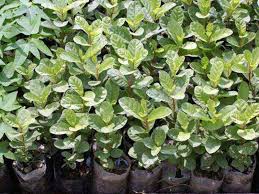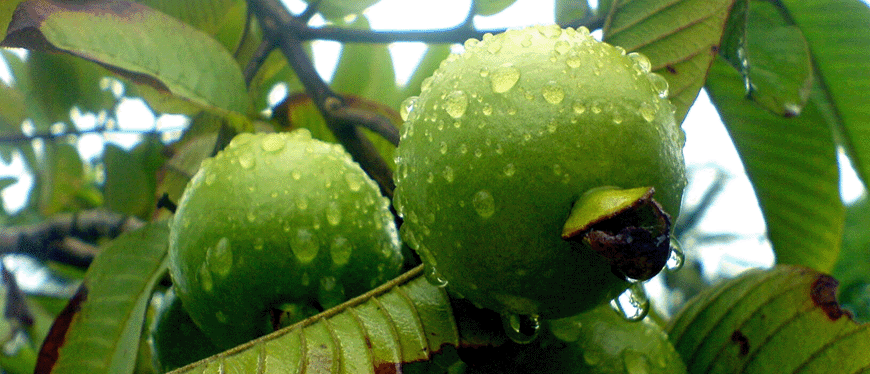Guava general information.
Guava (Psidium
guajava L) of the myrtle family (Myrtaceae),
is the fifth most widely grown fruit crop in India after banana,
mango, citrus and papaya. The fruit has gained considerable
prominence in India due to its high nutritive value,
moderate prices, pleasant aroma and good flavour.
Guava is a rich source of vitamin C and pectin and moderate source
of B vitamins, calcium, iron and phosphorus. It is one of the
commonest fresh fruits liked by the rich and the poor alike and is
popularly known as the ‘apple of tropics’ or `poor man’s apple’.
Only a small quantity of the production is utilized for processing
in the form of jelly, canned cups, juice and nectar, cheese, toffee
bar, powder, flakes and strained baby foods have also been prepared
besides commercial pectin.
 Propogation: Though
guava is sometimes propagated through seeds, it is not
desirable as seedlings are not true to types. However,
seed propagation may be employed to raise rootstocks.
Freshly extracted mature seeds from ripe fruits are sown
in polythene bags or nursery beds. Individual seedlings
can be transplanted to pots when 10 cm high.
Propogation: Though
guava is sometimes propagated through seeds, it is not
desirable as seedlings are not true to types. However,
seed propagation may be employed to raise rootstocks.
Freshly extracted mature seeds from ripe fruits are sown
in polythene bags or nursery beds. Individual seedlings
can be transplanted to pots when 10 cm high.
 These
seedlings will be ready in the 8 to 12 months for
budding or grafting when they attain pencil thickness.
Forkert followed by patch budding is found best for
guava. Veneer grafting and inarching are also
successful. It is also propagated through layering,
cuttings and budding.
These
seedlings will be ready in the 8 to 12 months for
budding or grafting when they attain pencil thickness.
Forkert followed by patch budding is found best for
guava. Veneer grafting and inarching are also
successful. It is also propagated through layering,
cuttings and budding.
